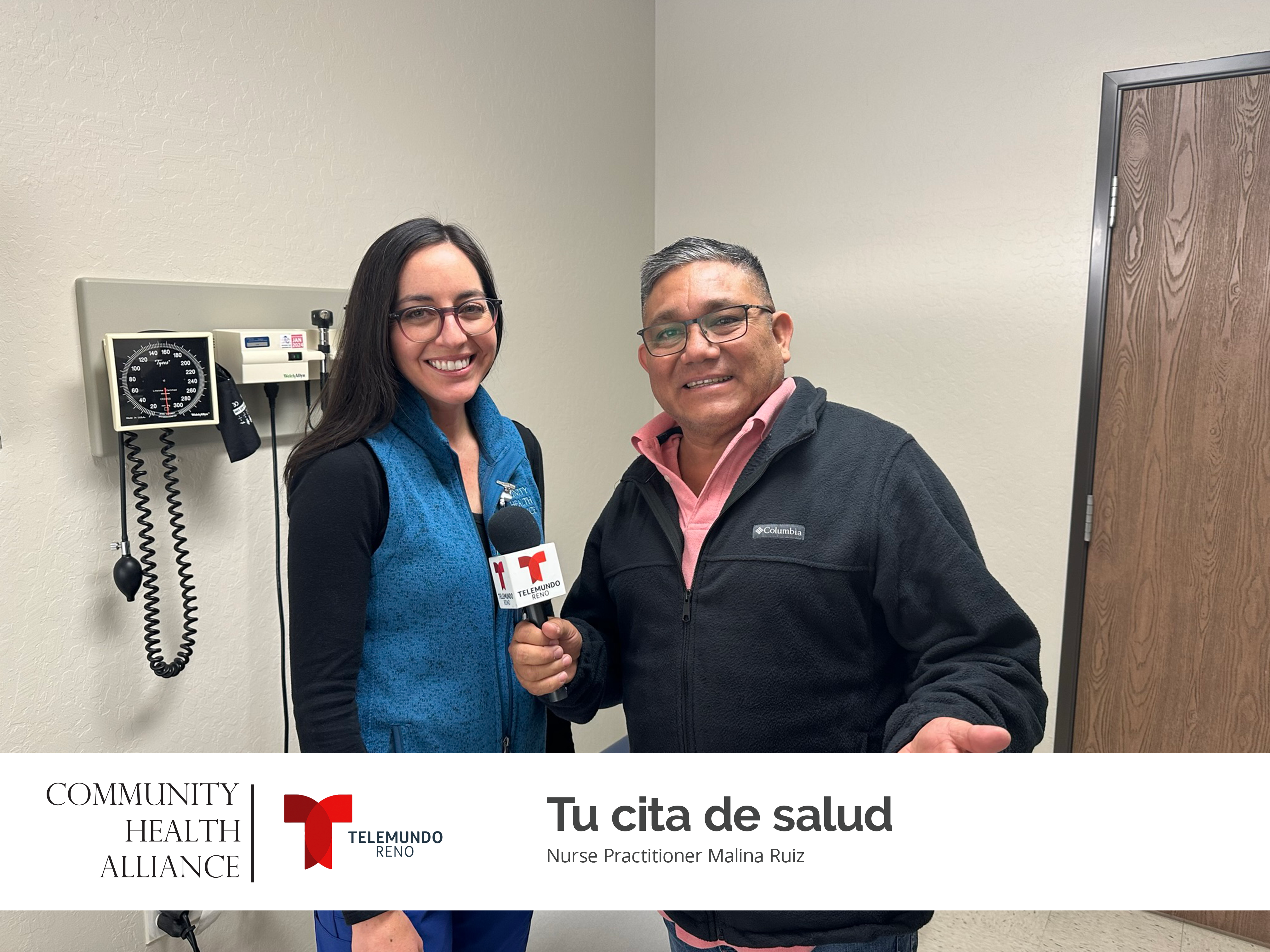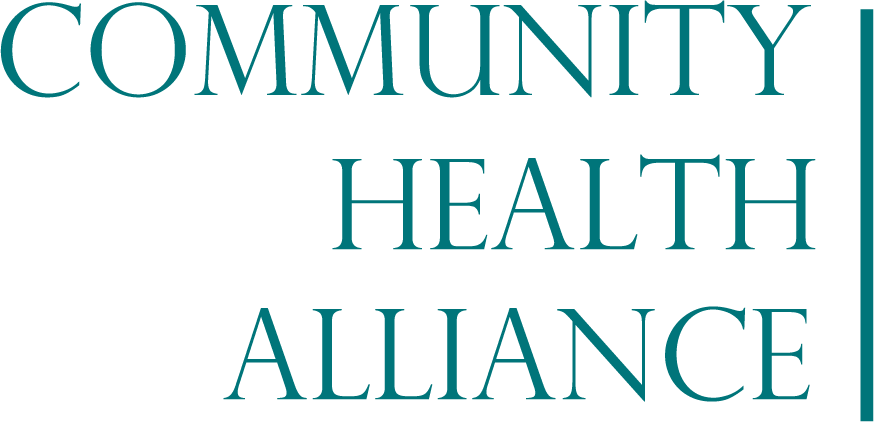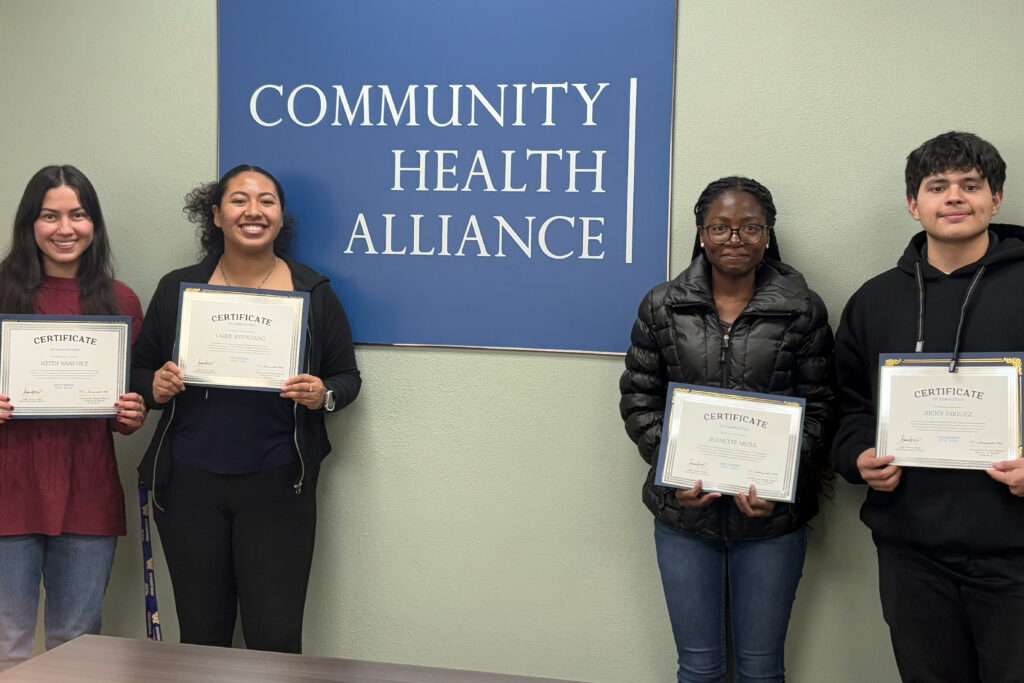“Tu cita de salud” with Telemundo Reno and Community Health Alliance: National Diabetes Awareness Month
Learn about diabetes and the symptoms during National Diabetes Month.

Luis Latino: Hello, friends! Welcome to another segment of Your Health Appointment (Tu cita de salud) with Community Health Alliance. I am accompanied by Malina Ruiz, APRN, FNP. She is an advanced nurse with this clinic. Welcome to Telemundo Reno.
Malina Ruiz: Thank you!
Luis Latino: It’s November, which is Diabetes Awareness Month. What should we know to prevent diabetes?
Malina Ruiz: Well, there are many things we can do in our lives to prevent it. I think it’s very important to know how to live a healthy life. This includes diet and exercise. The truth is that what affects us most is food.
Luis Latino: You also told me that there are many different types of diabetes. Can you tell us a little bit about the different types of diabetes?
Malina Ruiz: There are two types of diabetes that are most common. Type 1 is where one is born with it. It’s found more in children and young people, and that’s when the pancreas doesn’t make insulin. You have to use insulin for your entire life. Type 2 is where people are not taking care of their health, like with their diet. Factors that make us prone to diabetes are being overweight, lack of activity, or diet. Also, your genes are a factor if someone in the family has had diabetes. Ninety-five percent of patients have Type 2 diabetes. Five percent have Type 1.
Luis Latino: And how common is diabetes in Latinos?
Malina Ruiz: I was looking at some statistics, and it’s 70 percent more common in Latinos. That has to do with our culture, especially the food we eat. We’re also more likely to be overweight. We can also inherit diabetes from genes.
Luis Latino: What are the symptoms that we should be aware of? What are the most common symptoms?
Malina Ruiz: Some of the most common symptoms of diabetes are being thirsty, very hungry, urinating a lot, and losing a lot of weight. Also being tired and having headaches. These symptoms are not seen until diabetes has advanced. That’s why they call it a silent disease because you don’t know until you get checked.
Luis Latino: Should we constantly check ourselves if we know we have a genetic history? Would it be good to do a blood test?
Malina Ruiz: Of course, we always recommend doing an annual check, and with that, comes the blood test. We can see your sugar levels. That gives us an idea if one is prediabetic or has diabetes.
Luis Latino: Our diet is very rich, tamales, tortillas, and tacos. They are all delicious. We need to take control of that and take care of our health. Is there something else you want to add?
Malina Ruiz: If you are looking for a new provider at Community Health Alliance, we are accepting new patients. You can visit our website on the internet or call for an appointment. It is very important to do your annual check-ups to prevent disease, and here, we can start the process. We even have pharmacies in the clinics to start the medicines, if necessary.
Luis Latino: Thank you very much! Their phone number and website will appear on the screen. Thank you!
To make an appointment, call (775) 329-6300 or pre-register online.
Sign Up for Our Newsletter
SubscribeSign Up for Our Newsletter
By submitting this form, you are consenting to receive marketing emails from: Community Health Alliance. You can revoke your consent to receive emails at any time by using the SafeUnsubscribe® link, found at the bottom of every email. Emails are serviced by Constant Contact
By submitting this form, you are consenting to receive marketing emails from: Community Health Alliance, 680 S. Rock Blvd, Reno, NV, 89502, https://www.chanevada.org. You can revoke your consent to receive emails at any time by using the SafeUnsubscribe link found at the bottom of every email.


